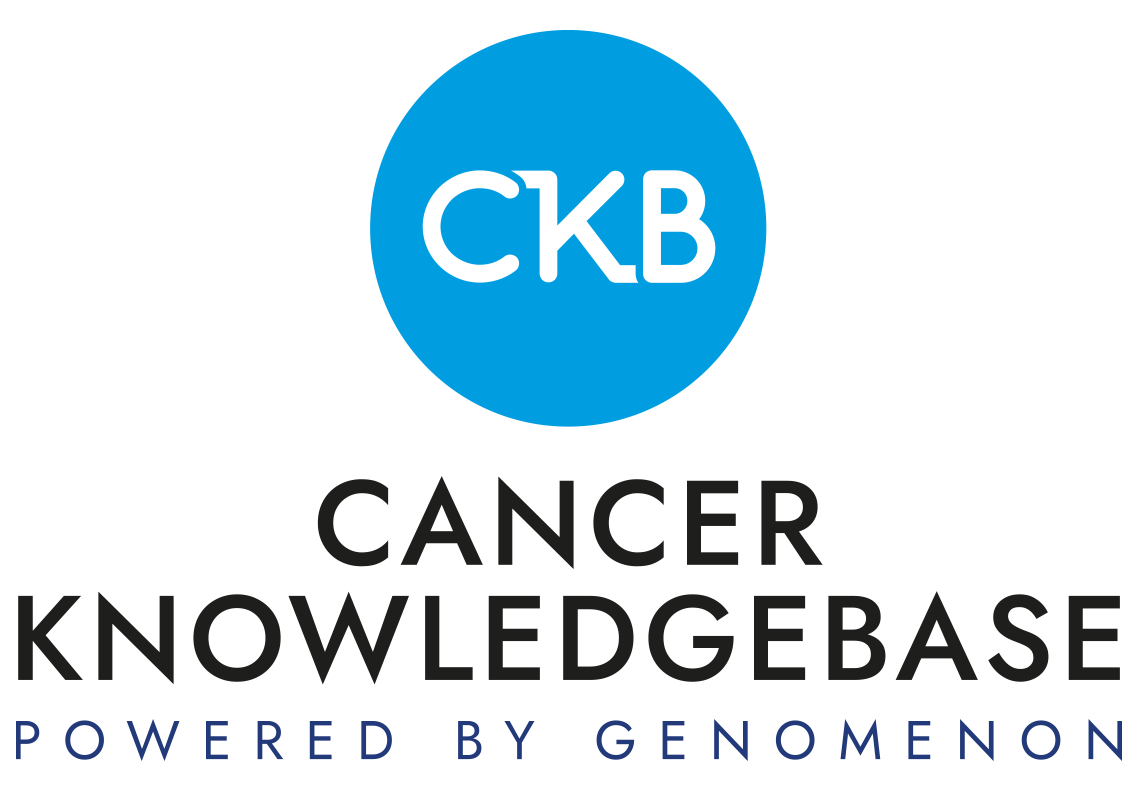 About CKB
About Genomenon
About CKB
About Genomenon
Navigation Legend
Glossary of Terms
Curation Methodology
Frequently Asked Questions
Advanced Search Options
Disclaimer Contact CKB
Decision Matrix: Gene Variants
The curation methodology for assigning a protein effect to a gene variant is based on the criteria listed below for each type of effect. See Protein Effect Definition
|
Gain of Function
(Activating) |
Peer-reviewed published literature demonstrating functional evidence that the gene alteration present results in increased INTRINSIC activity of the protein. |
|
Gain of Function - Predicted
(Inferred Activating) |
The specific type of gene alteration as well as its location is similar to other alterations in the same gene that have been functionally characterized as a gain of function within peer-reviewed published literature. |
|
Loss of Function
|
Peer-reviewed published literature demonstrating functional evidence that the gene alteration present results in decreased INTRINSIC activity of the protein. |
|
Loss of Function - Predicted
(Inferred Inactivating)
|
The specific type of gene alteration as well as its location is similar to other alterations in the same gene that have been functionally characterized as a loss of function within peer-reviewed published literature. If all known functional domains or a key domain (i.e. protein kinase domain) are lost, is also appropriate. |
|
No Effect
(Benign)
|
Peer-reviewed published literature demonstrating functional evidence that the gene alteration present results in activity similar to that of wild-type and does not demonstrate tumorigenic attributes. |
|
Unknown
|
There is no peer-reviewed published literature demonstrating the gene alteration present affects the intrinsic activity of the protein. |
Decision Matrix: Types of Evidence
The curation methodology used to classify evidence is based on the definition and required criteria listed below for each evidence type. See Evidence Type Definition
| Actionable | Actionable evidence is clinical or preclinical data supporting a connection between a molecular profile and a drug response, which is also referred to as "predictive" in the literature. The related response type may be sensitive or resistant. |
| Diagnostic | Diagnostic evidence connects a gene variant or category of variant to the diagnosis of a disease and is supported by either Guidelines, two meta-analyses, or four peer-reviewed published studies. |
| Prognostic | Prognostic evidence connects a gene variant or category of variant with disease outcome and is supported by either Guidelines, a meta-analysis, a review article, or three peer-reviewed published studies. |
|
Risk Factor
|
Risk factor evidence connects a germline variant or category of variant to the risk of disease onset and is supported by either Guidelines, a meta-analysis, a review article, or three peer-reviewed published studies. |
| Emerging | Emerging provides evidence for potential development of a gene variant as a future cancer therapy target. |
| Not Active | Not Active indicates a particular therapy is no longer involved in any clinical trials and has no other available efficacy evidence. |
Decision Matrix: Response Types
The curation methodology used to classify evidence response type is based on the definition and required criteria listed below for each response type. See Response Type Definition
| Sensitive | Peer-reviewed published literature demonstrating evidence that a specific gene variant is sensitive to a monotherapy or combination therapy. |
| Predicted-Sensitive | Peer-reviewed published literature demonstrating evidence that an unspecified variant or pathway is sensitive to a monotherapy or combination therapy. If the drug has a specific target or is weakly connected to a target is also appropriate as well as evidence described as preliminary or modest. |
| Resistant | Peer-reviewed published literature demonstrating evidence and specifying that a gene variant is resistant to a specific monotherapy or combination therapy. |
| Predicted-Resistant | Peer-reviewed published literature demonstrating evidence that a category of variant or pathway is resistant to a specific monotherapy or combination therapy. If the evidence described suggests potential resistance, is also appropriate. |
| Decreased Response | Peer-reviewed published literature demonstrating evidence that treatment with a specific monotherapy or combination therapy results in a decreased response when in the context of a specific gene variant. |
| Conflicting | Peer-reviewed published literature from more than one study demonstrating conflicting evidence that a gene variant is or is not sensitive to a specific monotherapy or combination therapy. |
| No Benefit | Peer-reviewed published literature demonstrating evidence that a specific monotherapy or combination therapy does not benefit a particular tumor type. Evidence demonstrating a gene variant or category of variant does not respond to a specific monotherapy or combination therapy. |
| Not Applicable | Evidence types including emerging, diagnostic, and prognostic. Peer-reviewed published literature demonstrating evidence that a monotherapy or combination therapy results in a response, but is not specific to a gene variant or category of variant (defined as Unknown unknown), is also appropriate. |